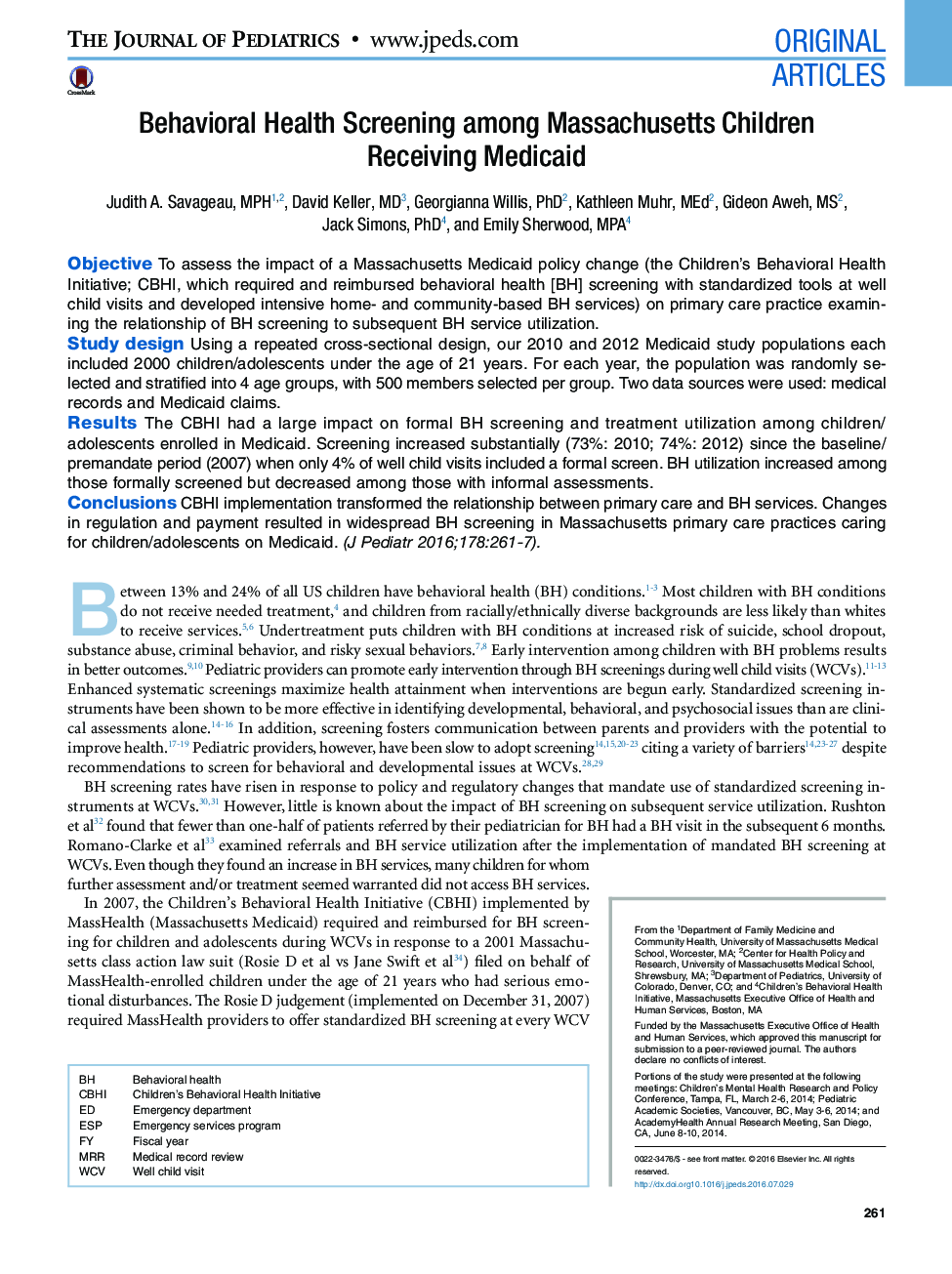| Article ID | Journal | Published Year | Pages | File Type |
|---|---|---|---|---|
| 5719785 | The Journal of Pediatrics | 2016 | 7 Pages |
ObjectiveTo assess the impact of a Massachusetts Medicaid policy change (the Children's Behavioral Health Initiative; CBHI, which required and reimbursed behavioral health [BH] screening with standardized tools at well child visits and developed intensive home- and community-based BH services) on primary care practice examining the relationship of BH screening to subsequent BH service utilization.Study designUsing a repeated cross-sectional design, our 2010 and 2012 Medicaid study populations each included 2000 children/adolescents under the age of 21 years. For each year, the population was randomly selected and stratified into 4 age groups, with 500 members selected per group. Two data sources were used: medical records and Medicaid claims.ResultsThe CBHI had a large impact on formal BH screening and treatment utilization among children/adolescents enrolled in Medicaid. Screening increased substantially (73%: 2010; 74%: 2012) since the baseline/premandate period (2007) when only 4% of well child visits included a formal screen. BH utilization increased among those formally screened but decreased among those with informal assessments.ConclusionsCBHI implementation transformed the relationship between primary care and BH services. Changes in regulation and payment resulted in widespread BH screening in Massachusetts primary care practices caring for children/adolescents on Medicaid.
